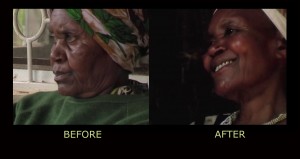RCC students see cultural share benefit
December 17, 2014DECEMBER 15, 2014 5:00 AM • RACHEL RODGERS H&R STAFF WRITER
DECATUR – A shared story can transform a life, and truth that is never spoken can never lead to change.
This was the message that director Eliaichi Kimaro delivered to students, faculty and staff during a visit to Richland Community College.
Kimaro, a first-generation American with Korean and Tanzanian roots, created the award-winning documentary “A Lot Like You,” which examines her journey to find personal balance
and a connection with Chagga culture, made of tribes living on the slopes of Mount Kilimanjaro.
“We all have a need to have our stories heard, to know that our lives matter to someone other than ourselves, that who we are in this world matters,” she said. Kimaro demonstrated the difference that catharsis can have on an individual by showing film clips of her aunt before and after she told her story, a visible change from tension and anger. “It’s all about opening doors and shedding light in a lot of dark places,” she said.
In anticipation of the visit, sociology professor Kristi Palmer showed two of her classes the documentary, prompting discussion on the film’s sociological impact and integrating aspects in other lectures.
Palmer said being exposed to cultural experiences allows for greater acceptance and understanding for students, and Kimaro’s message shows that though everyone has a unique story, the stories overlap with many of the same emotions at their core level. “We are so much more than what we present; we are full of experiences, questions, doubts,” she said. “I think that, ultimately, it makes you look beyond what you see on the surface and realize there’s a history in each person that has shaped them dramatically.”
Richland student Lakyshia Reed said having enough courage to share one’s personal story can be a difficult boundary to cross. “A lot of people are too scared to let their story be told or to tell their own story,” she said. “I think her story brought a lot of hope to myself and to speak on my own story.”
Sherrie Hildreth, an instructor of humanities, music and sign language, comes from African-American, Cherokee, Italian and Ossetian ancestry. She said identity is an important
journey for college students, who are at the height of searching for self-discovery and cultural relevance.
“There are some things that you just can’t teach from a textbook,” she said. “I often tell mystudents that no one has the same story that you have, and many do not have the
opportunity to tell their story and be told that it is valuable.”
Eliaichi Kimaro and RCC student Lakyshia Reed.

